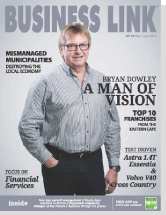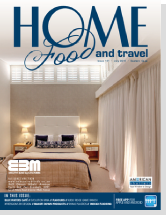Inside the Port Elizabeth tow truck wars
A tow truck driver is fighting for his life in hospital after being shot several times outside the offices of Compsol Relay ambulance service in Seventh Avenue, Newton Park on Thursday evening.
29 year-old Philip Wolfsburg, a driver at Precision Towing services in Port Elizabeth, is believed to have been shot at least twice, possibly three times, by an unidentified shooter while sitting in his vehicle.
While police could not ascertain the motive for the shooting, there have been on-going tensions between rival towing services in the city.
Over two weeks in January this year, there were several reported arson attacks on vehicles belonging to rival towing companies in Port Elizabeth – and a violent confrontation was only a matter of time.
There are several tow truck companies operating in the Nelson Mandela Bay, but the industry is dominated by Crash Motors Towing and Recovery, Precision Tow-In and a relatively late comer, V &R Auto Towing.
Death threats, allegations of racism and that some companies are trying to monopolise the notorious but highly-lucrative local tow truck and vehicle repair industry, have always made rounds in recent years.
V&R Auto owner, Raven Rungan, in January said confrontation was looming in the industry because insurance companies refused to list small and non-white owned companies as service providers.
“Everything has changed in South Africa over the past 20 years and all races have access to all types of business. This is except for [vehicle] recovery and repair shops in the Eastern and the Western Cape.
“This is a racist industry, black people just can’t get in,” he was quoted in The Herald.
Meanwhile, Auto Bodyworks and tow-truck business owner, Dave Mandel, told the paper that: “Port Elizabeth is a small town and everything was quiet until V&R came on to the scene. Suddenly vehicles are being burned and people are being attacked and beaten up.”
In October, fists reportedly flew between rival towing company employees over a vehicle wreck - while paramedics were still treating the vehicle’s injured driver.
Around that same month, V&R Auto and Precision Towing drivers also reportedly fought one another as emergency workers were trying to stabilise an accident victim.
Some of the tension between the drivers is understandable. Tow truck drivers reportedly work on a commission basis with a small basic salary.
Basic salary in 2014 was anything between R750-00/week to roughly R2250/week and commission is worked out on a sliding scale. Hence, the animorsity at accident scenes.
Not a Port Elizabeth problem
The problem is not peculiar to Port Elizabeth, in the Western Cape, a tow truck driver was shot dead on his first day in January.
In that province, non-white tow truck owners have also complained that they are prejudiced by insurance companies.
In March, a prominent Durban tow truck boss, Althaf Dawood, was shot dead at the scene of a crash – allegedly by a driver from a rival company – while police were nearby. The rival tow truck driver was arrested and has since appeared in court for his murder.
In Limpopo, a tow truck boss, Morgan Matlala, was shot and killed by unknown assailants. There had been an alleged assassination plot against him dating back to 2012.
Worse incidents in the Eastern and Western Cape
In an article in the Small Business Connect magazine in February, the South African Auto Repairer and Salvage Association (Saarsa), which represents 400 small tow-truck and panel beating companies nationally, said only the Western Cape and Eastern Cape regions have been affected by tow truck violence.
The association alleges that big “white” companies are monopolising the market and putting small towing and repair firms out of business.
Saarsa chairman, Len Smith, says the trouble began when insurance companies started a preferred insurance service provider system which limited procurement opportunities for small towing and repair companies. The system makes it compulsory for policyholders to use only the services of those towtruck companies that are listed on the insurers’ database.
Previously, he says, an unwritten rule existed where the first tow-truck on the accident scene would get the work, which suited small black-owned towing companies that operated in their own areas.
“This system is designed to ensure that the previously advantaged companies stay advantaged and does not allow for new entrants into the market who cannot afford to comply with the criteria to become a preferred supplier,” says Smith. He says insurers have now even started call centres to distribute work to preferred service providers.
“When there is an accident, the policyholder must contact the call centre and the call centre will advise him which company to give the car to. If you are not on the preferred supplier list you do not get the work. But even if you qualify to get on the preferred supplier list, the call centres still favour the big companies,” he alleges.
“But, since 2002/2003 (financial year) more insurers have been giving its preferred suppliers rights to tow cars anywhere, even in traditional black neighbourhoods,” says Smith.
This not only affects the small black towing operator but also the small black panel-beating company which relies on the black towing firms to supply them with work. He says in the last 10 years more than 50 small black towing and panel beating companies had to close down.
Smith says the association’s members have started a co-operative and are working on a contract agreement between themselves, the government and insurers that would see them receive more work from insurance companies.
However, in the same article, the South African Insurance Association (Saia) Acting Chief Executive, Viviene Pearson, which represents 60 short-term insurance companies, denied the claims that insurers are favouring white-owned businesses.
She stressed that just a third of motor vehicles on South African roads are insured, making it impossible for the insurance industry to provide work to all service providers.
The 'big' tow truck companies also refuted the allegations saying that insurers prefer them because they complies with the rules and regulations set out by the insurance industry.
---part of this article was taken from the DTI's Small Business Connect magazine. Additional reporting, The Herald PE.
Related Stories
French police have confirmed the arrest of a single suspect following yesterday’s rumoured terror attack on a gas factory in the small town of Saint-Quentin-Fallavier near Lyon.
The Sharks on Friday announced the signing of Springbok loosehead prop, Coenie Oosthuizen, on a four-year deal.
The Department of Energy announced on Friday that the price of petrol will increase by between 41 cents and 44 cents per litre for July, with Diesel and illuminating paraffin rising by four and eight cents respectively.
An attack on a gas factory in France has been blamed on the Islamic State (ISIS) after a black flag brandishing the terror organisation’s insignia, was hoisted above the facility near the town of Saint-Quentin-Fallavier earlier today.
Projects and construction within the Coega Development Corporation’s Industrial Development Zone (IDZ) has received positive feedback after a visit from several local and regional government officials which took place earlier today (26 June 2015). Sakhumzi Somyo, MEC for the Department of Economic Development, Environmental Affairs and Tourism...
Two men, who were convicted of raping an American tourist, who was on holiday in...
Eskom will implement stage 2 load shedding from 16:00 on Friday...
With a month to go until we honour Nelson Mandela on his birthday, 18 July, the Vital Foundation is calling on all South Africans...
Two women accused of the second defacing Uitenhage's Anglo-Boer War Memorial on...
The South African National Blood Service, SANBS, celebrates July as Mandela Month...
-
 Swift justice: Two men convicted of raping American tourist get life terms
Swift justice: Two men convicted of raping American tourist get life terms
-
Inside the Port Elizabeth tow truck wars
-
 French factory attack: Suspect was “a calm and quiet person”
French factory attack: Suspect was “a calm and quiet person”
-
 Petrol price up by 44c for July
Petrol price up by 44c for July
-
 Mandela Day: Vital Foundation encourages all South Africans to take up the fight against woman and child abuse
Mandela Day: Vital Foundation encourages all South Africans to take up the fight against woman and child abuse












